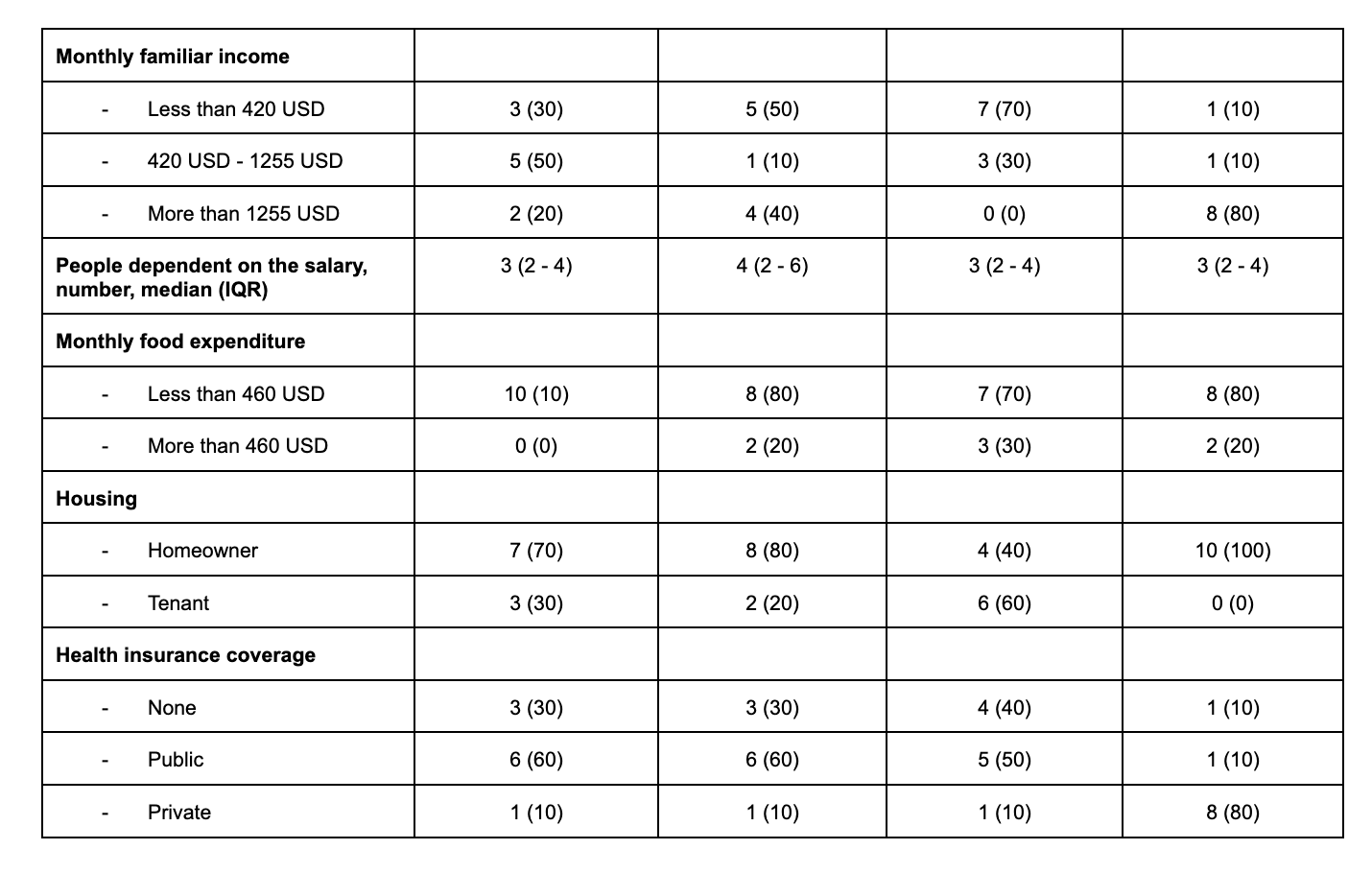Session Information
Date: Tuesday, October 28, 2025
Title: (2547–2566) ARP Posters I
Session Type: Poster Session C
Session Time: 10:30AM-12:30PM
Background/Purpose: Human dignity is an inherent value for all individuals. In healthcare, dignity is often referred to as perceived dignity, which encompasses the value and respect attributed to others and perceived within a social interaction context. This value can be compromised by disease, disability, or death. Patients with rheumatic diseases face challenges that can negatively impact their perceived dignity, including physical function loss, reduced independence, uncertain prognosis, and changes in appearance. Perceived dignity in patients with rheumatic diseases has not been thoroughly explored. The objective is to measure perceived dignity in women with rheumatic diseases.
Methods: A retrospective, descriptive, cross-sectional study was conducted. The validated Perceived Dignity Inventory (PDI-MX) questionnaire was applied to 90 reproductive-age women (18–45 years) with established rheumatic diagnoses attending the “Clinic of Reproduction, Pregnancy, and Rheumatic Diseases” at University Hospital in Monterrey, Nuevo León. The questionnaire consists of 25 items scored on a 5-point Likert scale (1= “not a problem” to 5= “a very severe problem”). Scores range from 25 to 125, with a threshold of ≥54.5 indicating impaired perceived dignity. Associations were analyzed using an independent Student’s t-test and one-way ANOVA tests.
Results: A total of 90 women of reproductive age with a rheumatic disease diagnosis were included, with a mean age of 31.16 years (SD ± 10). The most common diagnosis was systemic lupus erythematosus (37.8%), followed by rheumatoid arthritis (32.2%). Most participants had completed middle school (37.8%) or university education (36.6%), were unemployed (61.1%), and had lived with their diagnosis for over two years (73.3%). Marital status was evenly split between married and single women (34.4% each) (Table 1).
The Perceived Dignity Inventory (PDI-MX) total score had a median of 33 (IQR 29–47). Based on the cutoff score of >54.5, 15 participants (16.7%) were categorized as having impaired dignity. Among the four PDI-MX domains, Loss of Meaning in Life showed the highest average score (mean 18.62 ± 7.9), followed by Discomfort and Uncertainty (mean 11.29 ± 4.2), Loss of Independence (mean 5.42 ± 1.9), and Loss of Social Support (mean 3.70 ± 1.4) (Table 2).
No statistically significant associations were found between PDI-MX scores and sociodemographic characteristics (Table 3).
Conclusion: A reduced sense of dignity can severely impact patients’ self-perception, mental health, and physical well-being. Public health policies focused on dignity recognition and patient rights are essential to improving patients’ quality of life and autonomy.
To cite this abstract in AMA style:
Ortiz-Rios A, Avalos-Garcia B, Arevalo-Nieto F, Corral-Trujillo M, Ayala-Garcia T, Ramirez-Cantu D, Tapia-Aguayo L, Ortiz-Palafox J, Perez-Garfias D, Cardenas-de la Garza J, Perez-Barbosa L, Galarza-Delgado D, Skinner-Taylor C. Perceived Dignity in Patients With Rheumatic Disease [abstract]. Arthritis Rheumatol. 2025; 77 (suppl 9). https://acrabstracts.org/abstract/perceived-dignity-in-patients-with-rheumatic-disease/. Accessed .« Back to ACR Convergence 2025
ACR Meeting Abstracts - https://acrabstracts.org/abstract/perceived-dignity-in-patients-with-rheumatic-disease/


.jpg)